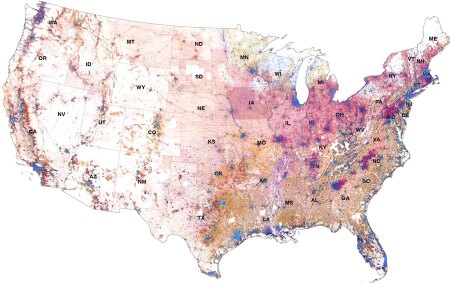The risk of property damage due to natural disasters including floods, wildfires, and heat is rising dramatically as the climate changes. By 2050, the monetary risk associated with extreme weather events and the long-term impacts of climate change is estimated to reach trillions each year.
Climate risk modeling and analysis is crucial for the real estate industry, as it helps to protect lives and property. Climate risk analysis tools enable real estate managers to evaluate current and future risk and integrate that into investment decisions. However, such software tools can struggle to translate the science of climate change to the business of real estate.
To help resolve this issue, ULI has been establishing dialogue between real estate professionals and climate risk data analytics firms that can help advance the interests of both parties. Enhanced collaboration and understanding between these two sides should continue to improve this evolving space, potentially improving both financial and climate-risk outcomes.
As part of these efforts, ULI collaborated with First Street Foundation, a research and technology nonprofit with expertise in assessing physical climate risk at the property level in the United States. First Street Foundation’s free Risk Factor platform for non-commercial properties has been widely adopted by the real estate industry and the federal government primarily due to its high-resolution, peer-reviewed, and transparent methodologies. Through a series of focus groups, ULI members informed the development of First Street Foundation’s latest climate risk analysis tool for commercial real estate, Risk Factor Pro. As a result, First Street Foundation is offering steep discounts on Risk Factor Pro for ULI members.
ULI Members Inform the Development of Risk Factor Pro
Risk Factor Pro was informed by numerous in-depth interviews with ULI members who are actively working to assess and address climate risk. In return, ULI members gained exclusive access to the tool, which became publicly available for all commercial and private users on November 7th.
ULI members also have access to significant Risk Factor Pro discounts. Five free reports (a $500 value) will be given to all ULI members and 50 percent off company subscriptions will be provided to ULI Greenprint members. ULI Greenprint members will receive the climate risk enterprise tools for up to $100,000 off the list price—the biggest discount First Street Foundation will offer.
Thanks in part to ULI member insights, Risk Factor Pro delivers a level of detailed analysis and data on the physical impact of climate never before available from First Street Foundation. This includes analysis of the impact of flood, wildfire, and extreme heat, along with estimates of potential damage and rebuilding costs, building emissions, visual graphics at varying levels of geography, interactive maps, and more. Risk Factor Pro goes beyond exposure data and allows users to customize building characteristics, ensuring a property-specific and highly granular climate risk assessment.
“Risk Factor Pro brings together the leading science, the best engineering, and an unbeatable user interface to empower industry professionals with the data they need to truly understand and address the impact of climate to their portfolio,” said Matthew Eby, CEO of First Street Foundation. “With members managing well over $1 trillion in real estate assets, ULI was the ideal institution to help inform the development of Risk Factor Pro to create something truly valuable and unique.”
“Climate risk will shape the future of real estate,” said Billy Grayson, Executive Vice President of Centers and Initiatives for ULI. “We believe connecting ULI members with climate risk software developers benefits the real estate industry and we were excited to inform Risk Factor Pro.”
As climate risk continues to heighten, ULI’s Urban Resilience program and the Randall Lewis Center for Sustainability in Real Estate will continue to develop resources in collaboration with ULI members and partners that better prepare our buildings, communities, and industry for the impacts of climate change.





